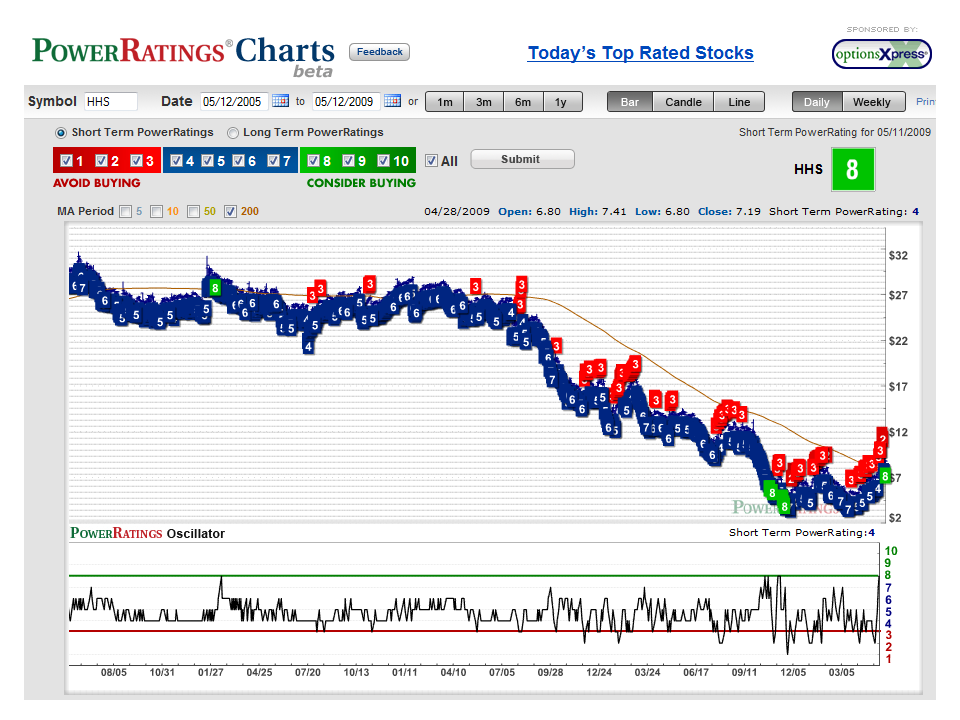 |
When a local list broker asked me for career advice last month, I realized that a human element is often missing from discussions about marketing trends and forecasting.
I realized too that inbound marketers can learn from the performance of companies like Harte Hanks - a company that essentially wholesales data to channel partners like list brokers (in addition to selling directly to its client base).
"Should I retrain?"
 |
Last month a list broker wrote to me asking,
"Are email and postal direct marketing to prospect lists truly going to become less effective in the next decade? If so, would you recommend a transition to social marketing, mobile marketing...? Maybe I need to institute some changes right now..."
He'd been reading my stuff about the future of B2B marketing, and where the numbers point. And how it's clear that one of the most effective communication tools over the next decade will be each company's own online presence.
That means hard working Web sites, of course, that ensure prospects find you.
And, on the flip side, it means less print advertising and purchased lists.
That's an ominous prospect for list brokers - professionals who sell lists for purposes of direct mail, email, and telemarketing.
The macro marketing environment
Let's get clear about terms here. Very roughly speaking, list brokers retail wholesale data collected by companies like . No brokers I know collect data themselves - they do, though, analyze and interpret data, create direct marketing campaigns, and sometimes manage campaigns.
Here is a chart showing the performance of Harte Hanks stock from May 2005 to May 2009:
 |
Credit: www.tradingmarkets.com
The Harte Hanks CEO says in a May 5th 2009 press release that,
“There continues to be economic uncertainty that makes it difficult to predict when conditions will improve. While we face challenges, we have a terrific client list and our businesses deliver products, services and marketing solutions that are even more necessary in this environment.”
If I go along with him, I have to infer that his clients don’t get the HH value proposition. If they got it, they’d buy. But who could be better at conveying value through marketing communications than a Harte Hanks? There must be something else going on.
Truth be told, Harte Hanks has, itself, moved into the website building business (see paragraphs under “Selected Highlights” near the bottom of this release).
Bye bye, list biz?
So yes, colleagues in the list biz, I’d recommend changing your focus. And I don’t take the issue lightly. It’s your career and livelihood we’re discussing.
A September 2008 post here called Is B2B marketing going obsolete? said
“The marketplace has experienced a significant shift in power. No longer are just vendors hunting prospects. Prospects, now, are experienced marksmen too. So… what now? What does this mean for B2B marketers? Should we change professions? Retool our company’s marketing? Wait and see?”
More recently, ”The State Of Retailing Online 2009: Marketing Report,” the 12th annual study conducted for Shop.org by Forrester Research Inc., showed that 88 percent of retailers surveyed said email is a high priority for the coming year, largely to retain customers.
Notice those last three words. These are emails to people who already have a relationshipwith the retailers. Not to prospects from purchased lists.
In fact, the study said 71 percent of retailers plan to send segmented emails to customers based on stated preferences or purchase data.
Challenges of being in the school of push communications
In What won’t fly in that 2009 marketing plan I suggested that B2B marketers consider skipping traditional marketing techniques in their 2009 marketing plans.
The reason: Purchased lists, whether they involve emailing, snail-mailing or telemarketing, belong to the school of ‘push’ communications.
Core skills of a successful list broker
So where does that leave list brokers? Many have been very, very successful for a long, long time with lists.
I’d venture that the best list brokers are particularly savvy about:
- Client relationship management
- Audience segmentation, including
- Behavioral targeting
- Psychographics
- A/B testing
- Quantifying ROI
What are some other strengths of a well-trained list broker? How can they apply their skills to newer marketing methods?
Resources — please add
I’ll start us off with a suggested resource — an article in the Hubspot blog. Please add your ideas.

